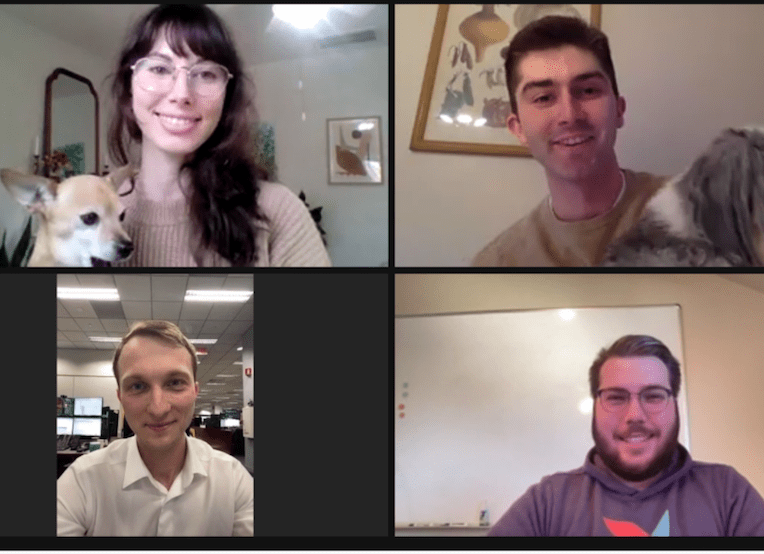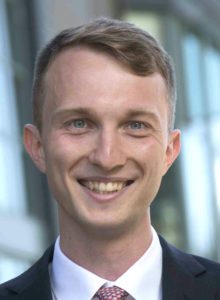
Master of Financial Engineering student Dmitry Silantyev and three teammates have won the grand prize at the Citadel Data Open Championship—one of the world’s largest and most prestigious university-level data science competitions.
The cross-school Team 13 won $100,000 for a data-led project that addressed how international trade impacts global plastic pollution. The group included Silantyev, MFE 22; David Buch and Jennifer Kampe, PhD students from Duke University; and undergraduate Julian LaNeve of Southern Methodist University (SMU).
The team presented their project at the end of the week-long global Data Open Championship sponsored by Citadel LLC and Citadel Securities in partnership with Correlation One last December.

At the start of the competition, the team was given a dataset on international trade and asked to assess the impact that trade has on global plastic pollution. They were tasked with coming up with a hypothesis based on the data set.
The team’s winning question: “Should the world ban the global waste trade, and should the U.S. sign on to the Basel Convention, an international treaty designed to reduce the amount of waste shipped between countries?” Their work recommended an introduction of trade restrictions based on specialization in different types of plastic waste treatment to counter the global pollution crisis.
Silantyev said the team benefited from having complementary skills.
“David and Jennifer were the masterminds behind the statistical model we used,” he said. While LaNeve served as the data engineer “capable of testing any hypothesis about the data in minutes.” Silantyev provided case studies to support the team’s narrative.
To work on the project in person with all four team members, Silantyev and LaNeve flew to Durham, NC, renting an Airbnb and working 12-hour days. “While working together online has its benefits, nothing beats working together in person,” Silantyev said. “We could easily bounce ideas off each other.”
The global championship was the culmination of the year-long competition, where over 6,000 students from more than a dozen countries participated in nine regional events. Team 13 was invited to the championship after placing in the top 3 in the Europe Regional Datathon and the East Coast Datathon.